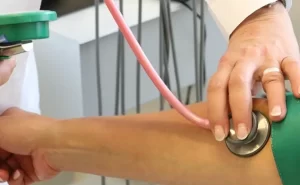Genital Nerve Cells React to Vibrations as a Treatment for Erectile Dysfunction
That’s a fascinating subject to discuss! The findings of a recent study regarding nerve cells and erectile dysfunction (ED) were, in fact, very encouraging. The following is a summary of the most critical points, along with some possible implications for the treatment of erectile dysfunction in the future:
The Research:
Researchers at Harvard Medical School have made significant contributions to our understanding of the complex mechanisms that underlie the human sexual response. In the course of their research, they were able to identify particular nerve cells that are situated within the penis and clitoris and that are especially sensitive to vibrations of minor frequencies.
Mechanoreceptors are specialized nerve cells located in the reproductive system that detect and convey touch-related sensations from the genitalia to the brain. The researchers discovered that these mechanoreceptors reacted heightened to vibrations that are low in frequency and soft in nature. This finding suggests that these mechanoreceptors play an important part in the perception of pleasure feelings that occur during sexual activity.
In addition, the researchers think that a more in-depth comprehension of the genital nerve system may also shed light on other elements of human sexuality.
The Harvard team has gained vital insights into the neurological systems that are responsible for sexual arousal and pleasure through the process of mapping the distribution and density of these vibration-sensitive nerve cells.
It is possible that this information could have substantial consequences for the development of more successful treatments for sexual dysfunction, as well as for the design of creative sex toys and devices that can better imitate the natural stimuli that these nerve cells are designed to respond to.
In addition, the researchers think that a more in-depth comprehension of the genital nerve system may also shed light on other elements of human sexuality. These aspects include the disparities in sexual responses that individuals have with one another, as well as the function that the central nervous system plays in the modulation of sexual encounters among individuals.
This ground-breaking research from Harvard Medical School is an essential step ahead in the scientific understanding of human sexuality. It offers a more nuanced and comprehensive view of the complex neurological circuits contributing to our intimate perceptions and experiences. In general, this research is a significant step forward.
Possible repercussions include:
Considerations of Vital Importance:
This study was conducted on mice; however, additional research is required to discover whether the same findings apply to human beings.
The biological response was the primary focus of the study; nevertheless, it is essential to consider the psychological aspects that can also play a role in the development of ED.
Any future treatments produced from this research will probably be utilized in conjunction with other therapeutic approaches to facilitate a more holistic approach.
It is essential to remember that this is still in the first stages of study, and it is quite probable that it will be some time before any treatments of this kind become accessible to the public.
The Future of Treatment for Erectile Dysfunction:
In the future, this research may lead to the creation of new treatments that do not involve any invasive procedures for erectile dysfunction (ED) and possibly other sexual dysfunctions.
It is essential to remember that this is still in the first stages of study, and it is quite probable that it will be some time before any treatments of this kind become accessible to the public.
Currently Available Treatment Options for Erectile Dysfunction:
There are several successful therapy alternatives available for erectile dysfunction (ED), particularly in the meantime that we wait for prospective novel medicines based on nerve cell stimulation.
Drugs taken orally: These drugs facilitate an erection by increasing the amount of blood that flows to the penis.
Erectile function can be improved: By changing one’s lifestyle, including maintaining a healthy weight, engaging in regular physical activity, and learning to manage stress.
Vacuum Devices: These devices form a vacuum that sucks blood into the penis, which results in an erection. Vacuum devices are also known as suction devices.
Surgical intervention: In certain instances, surgical intervention may be a possibility to enhance blood supply to the penis.
During therapy, it may be highly beneficial to address any underlying psychological concerns that may be leading to eating disorders.
Talking to your physician is essential if you are experiencing erectile dysfunction (ED). They can assist in determining the root cause of your erectile dysfunction and suggest the treatment alternatives that are most suitable for you.













